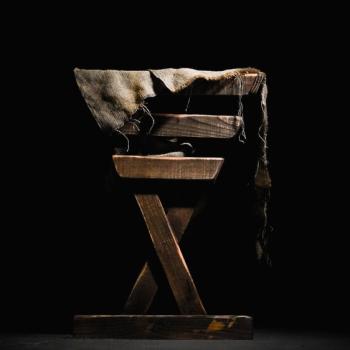Finally, there is a point I alluded to earlier: Is the Christian understanding of creation ineluctably at odds with Buddhist teaching? An entire book could be devoted to this topic, not least because there are different emphases within various schools of Christian thought and also within Buddhism. It is worth noting, however, that for a great theologian like Thomas Aquinas the world, whether or not it had a beginning, exists because of God, and "ultimately, this ‘because of' needs to be understood as a ‘final cause' ... that is, as a telos" (Perry Schmidt-Leukel, "Bridging the Gulf," in Buddhism, Christianity, and the Question of Creation 167).
In other words, everything in the cosmos exists for the reason or for the purpose of moving toward this ultimate divine goal. When one considers that in Buddhist teaching all sentient beings have an inclination toward nirvana, there does appear a certain parallelism that deserves further reflection and investigation. To be sure, the God whom Christians worship is primarily described in personal terms whereas nirvana is not, but the difference is not absolute. Christian thinkers like Paul Tillich and Henri Le Saux have written eloquently of an impersonal aspect to the Godhead, while the Japanese Buddhist monk Shinran, who died in 1263, claimed that "the utmost we can say about ultimate reality before admitting its ultimate ineffability is that, for us, the ultimate is like an infinitely compassionate father/mother" (Schmidt-Leukel, p. 154).
Regardless of whether or not we conclude that the Buddhist and Christian approaches to the question of creation are compatible, we can surely agree with Perry Schmidt-Leukel when he writes: "Both Christians and Buddhists could challenge and encourage one another to practice an attitude [toward the world] which combines loving involvement with selfless detachment. Buddhists may remind Christians that creation is not an end in itself, but has its goal in redemption, and Christians may remind Buddhists that the path to salvation and the existence in salvation are acted out here, in communion with all others, and nowhere else" (p. 176).
Father James Wiseman OSB is a monk of Saint Anselm's Abbey in Washington D.C. and a professor of theology at The Catholic University of America. He is a former chair of Monastic Interreligious Dialogue and has been editing its online Bulletin since 1998. His most recent book is, Spirituality and Mysticism: A Global View (Maryknoll, NY: Orbis, 2006), and his article on Thomas Merton and Theravada Buddhism appeared in Merton and Buddhism, edited by Bonnie Thurston (Louisville: Fons Vitae, 2007).
This article was originally posted at www.Gethsemani3.info/A Buddhist-Catholic Web Page on the Environment. "Monasticism and the Environment" was the theme of the third Buddhist/Catholic encounter sponsored by Monastic Interreligious Dialogue and held at Gethsemani Abbey in Kentucky in May 2008. Forty Buddhists and Catholics, most of them monastic men and women, gathered at this renowned Trappist abbey to reflect on and share with one another the environmental wisdom to be found in their monastic teachings and practices.




